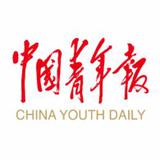整理/阳洋 制图/董怡璇
当仁不让
面对正义之事,主动担当,不推让。“仁”本指仁德,它是孔子的最高理念;泛指一切应该做的事情,即符合道义、正义的事情。犹言“义不容辞”“责无旁贷”。它弘扬的是一种以道义或正义为己任、勇于担当、勇于践行的主体精神。
When Facing an Opportunity to Exercise Benevolence, Do Not Yield.
This phrase means that one should behave ethically and never dodge one's responsibility. Ren(仁 benevolence) is the highest virtue upheld by Confucius. In general, it refers to everything that is right to do, namely things compatible with moral principles and social justice. The term is similar in meaning to "committing oneself completely out of a sense of duty," and "feeling morally obliged." It promotes a positive attitude that takes safeguarding morality and justice as one's own responsibility and dares to shoulder and execute that responsibility.
引例1 子曰:“当仁,不让于师。”(《论语·卫灵公》)(孔子说:“面对着该做的仁义之事,即便是老师,也不和他谦让。”)
Confucius said, "When faced with an opportunity to be benevolent, one should not yield even to one's own teacher." (The Analects)
引例2 勇一也而用不同。有勇于气者,有勇于义者。君子勇于义,小人勇于气。(《二程外书》卷七)(同样是“勇”,可以用在不同的地方。有的为了逞个人一时之气而表现“勇”,有的为了正义之事而显现“勇”。君子所以“勇”是为了道义,小人所以“勇”是为了逞个人一时之气。)
Courage can serve different purposes. Some people show courage at the spur of momentary emotions, while others do so for the sake of a just cause. A man of virtue becomes courageous when moral principles are at stake, whereas a petty man may be courageous in order to show off momentarily in front of others. (More Writings of the Cheng Brothers)
来源:中国青年报
特别声明:以上内容(如有图片或视频亦包括在内)为自媒体平台“网易号”用户上传并发布,本平台仅提供信息存储服务。
Notice: The content above (including the pictures and videos if any) is uploaded and posted by a user of NetEase Hao, which is a social media platform and only provides information storage services.

 北京
北京









































































